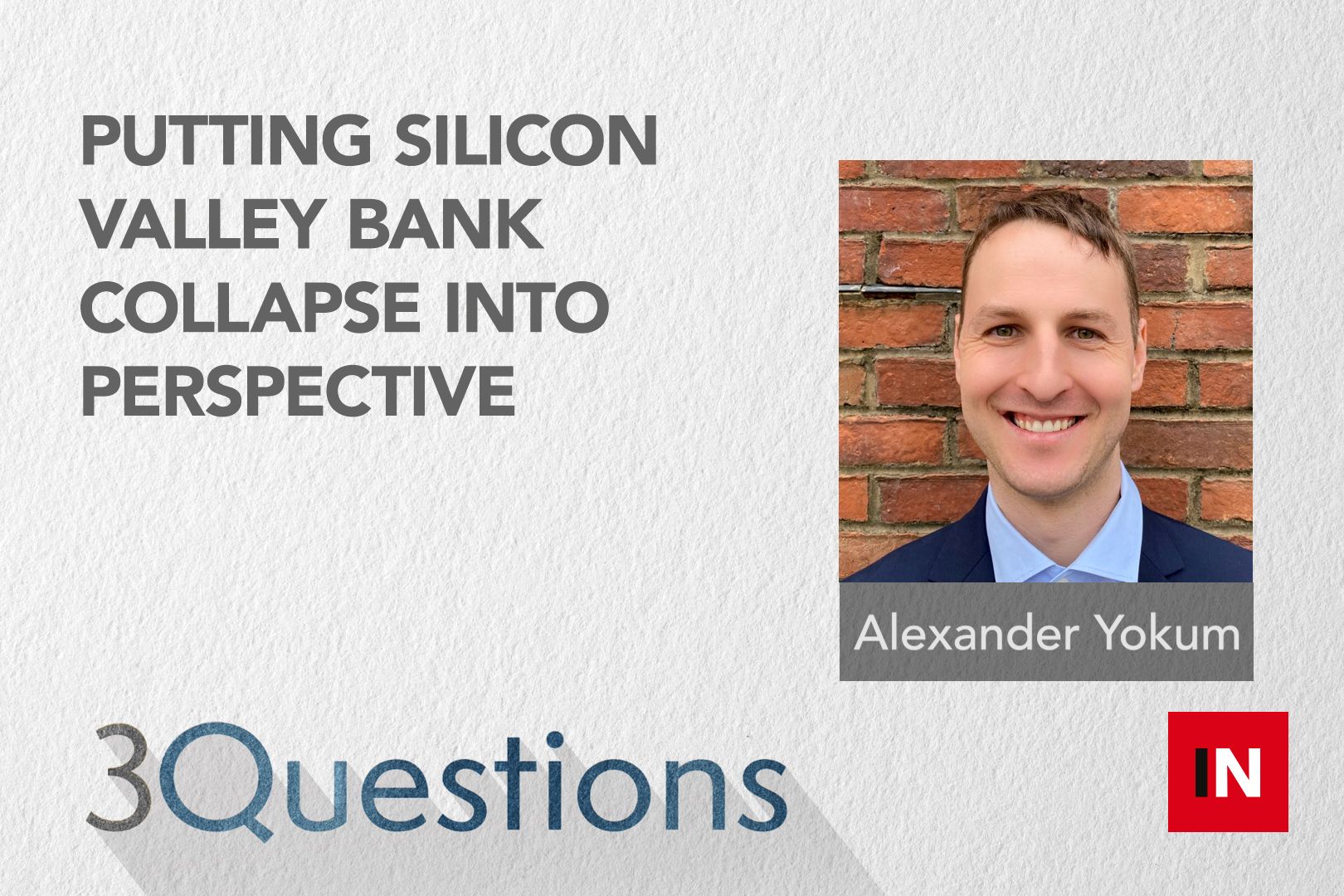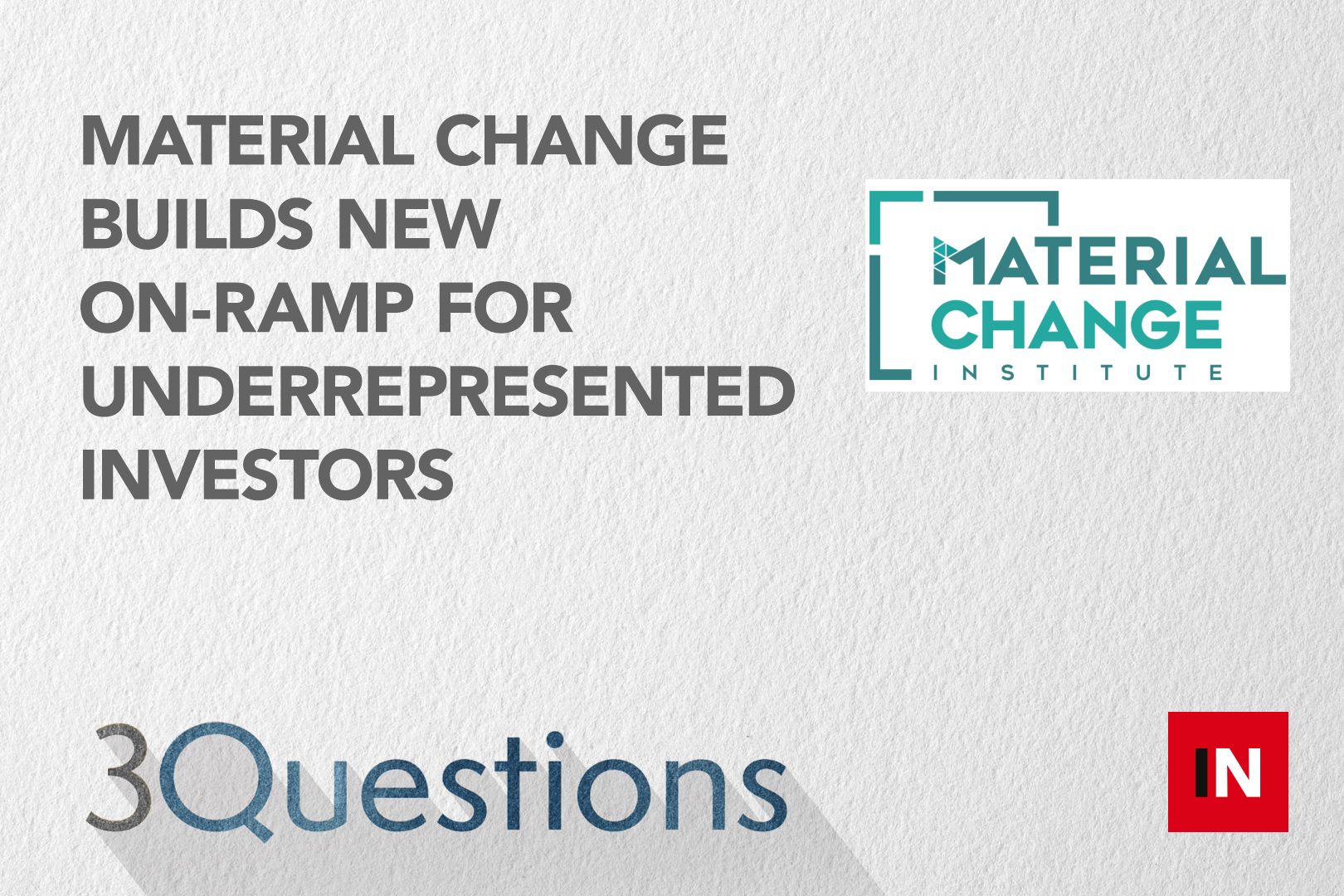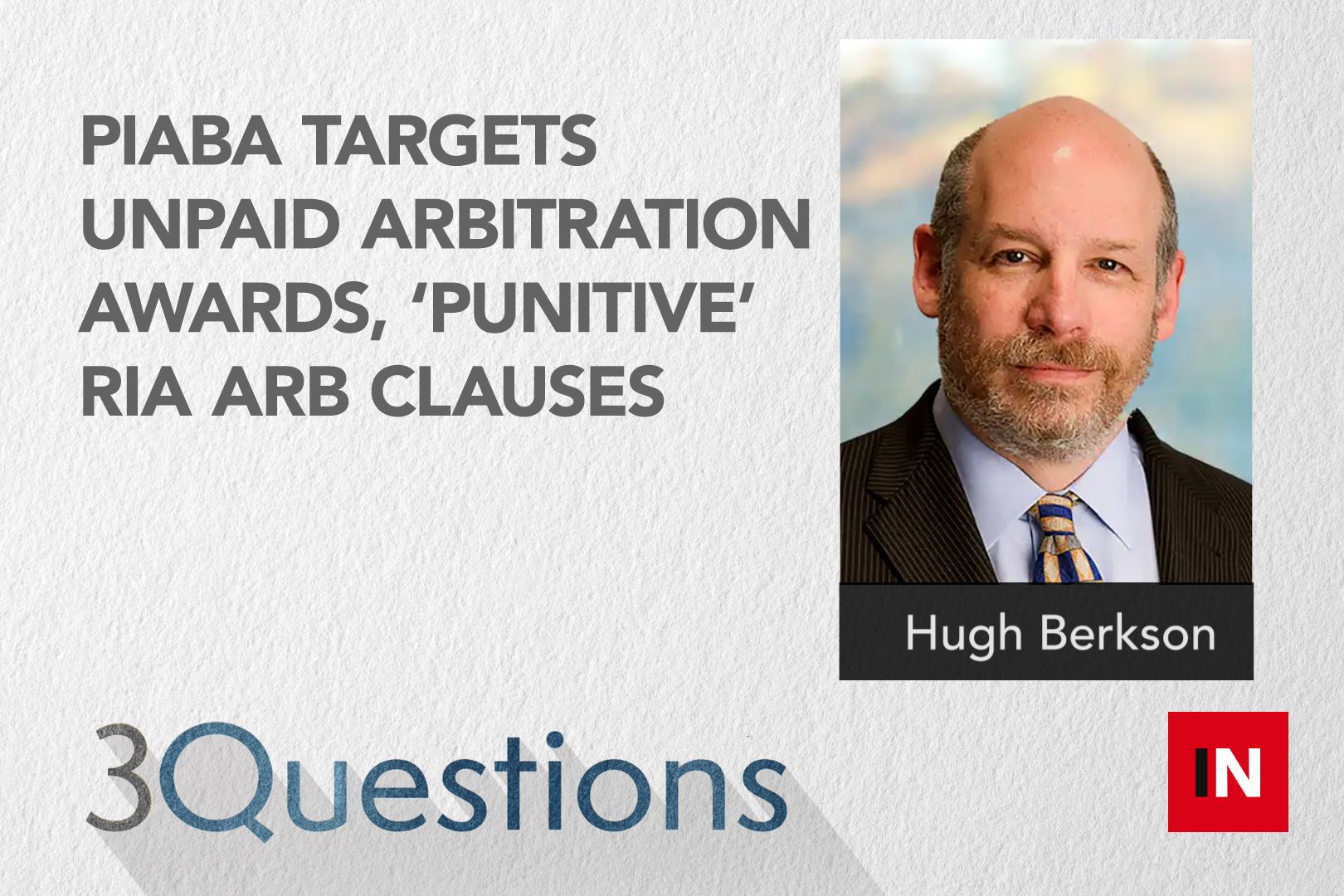The onus of ESG investing
It's important that investors roll up their sleeves and do their homework, says Liz Levy, portfolio manager at Trillium Asset Management.
Jeff Benjamin [00:00:03] Hello, folks, my name is Jeff Benjamin, and this is Three Questions. Today we’ve got Elizabeth Levy, portfolio manager at Trillium Asset Management. Hello, Elizabeth.
Liz Levy [00:00:13] Hi, I’m happy to be with you today.
Jeff Benjamin [00:00:15] Great to have you here. We’re going to talk ESG. I know this is something yet you’re you’re very well informed on. First question. With ESG investing continuing to gain momentum, as we know. Are there any specific areas within the various Biden administration proposals that are designed to add to this momentum?
Liz Levy [00:00:36] Yeah. Well, it’s no secret that American infrastructure, broadly speaking, is crumbling when bridges or buildings or dams collapse, for example. We all notice and we look around and say, what else may happen right away? But we are sort of like the proverbial frog in the pot, and we haven’t really noticed how much of an impact that are slowly degrading and out of date, but not yet catastrophic infrastructure has had on us. So while bills that have passed or may have passed some day won’t solve all of our problems, the investments should make things just easier across the board as they get rolled out. So, for example, increasing broadband coverage across rural areas, for example, increases the remote workforce potential and lets rural Americans participate in the trend of working from home. Increased funding for public transit and new safe bike lanes eases the commuting burden on those that do physically go into their workplace by providing choice for some and reducing overall traffic for all investments to improve airports and roadways will help prevent supply chain snarls like we’ve been dealing with over the last few months and hardening, improving and expanding the electric grid, for example, against catastrophic failures related to climate change that can grow enterprises to halt those we’ve already seen in the last year in both California and Texas. And that’s not to mention the portions that would help with longer-term issues like removing lead pipes, lead drinking water pipes that will help improve the future workforce development. Those are all pretty big picture things that will make all American businesses more competitive over the long run. But in the immediate future, there are specific companies, technologies and products that are going to benefit its investors to find them. It might mean companies that make capital equipment, for example, that used in fixing things. Or it might mean specific technologies that will benefit if used, for example, to fix the grid, where it might mean the engineers and contractors that are going to figure out how to spend this money and do the work.
Jeff Benjamin [00:02:40] All right now, here’s a here’s a curveball for you. What about the impact of inflation on these ESG growth patterns?
Liz Levy [00:02:47] So inflation that we’re currently seeing shouldn’t really be a surprise. Over a pretty short time period Americans in particular went from being a nation that spent almost every dollar we earned on services to one that spent much more on things. Over the last two years of the pandemic we’ve seen outbreaks ripped through industries as diverse as meatpacking and wind turbine components in countries all over the world. This fall in particular, we saw transit hubs like ports take their turn as the weakest link in the chain. Economic data, such as purchasing manager surveys are starting to show their pricing pressures and inventory issues are using. In addition, the base effects from comparing depressed prices from 2020 with 2021 prices is going to reverse that dynamic in 2022 as we start lapping up. So we do see some easing in that inflation, but at the same time, some changes might not be resolved so quickly. So extra payments to a variety of Americans help stabilize many families that are now over. In many cases so as employer patients, particularly for workers with children too young to be vaccinated but are still dealing with cobbling together inconsistent care as quarantine forces shutdowns, as well as inconsistent and changing guidelines. At the same time, minimum wage in the US has been seven dollars and twenty five cents for the last 13 years, and inflation over that time period, while lower than we’ve been experiencing recently, has been thirteen and a quarter percent. So the real value of that minimum wage job is just eighty seven percent of what it was when that rate was set for. The pandemic has seemed to open an opportunity for a reckoning among American workers trying to decide if low wage jobs in particular, but also high wage jobs are worth it. While employers are increasing compensation to try to retain workers, many are finding it’s more worth their while to quit and start over again and often at significantly higher wages. Social media is full of stories of retained workers paid fractions of new hires. Even financial services companies have been speaking recently about the extra compensation necessary to retain their highly paid workers. At this point, many workers are deciding that working is just not worth it and exiting the workforce also. The increase of strikes in unit unionization drives in the second half of 2021 point to the potential for a shift in the dynamic with regard to labor expenses in general, the next few months will show whether this moment was just a blip in time when things returned to normal or whether labor labor inflation will become more systematic.
Jeff Benjamin [00:05:16] All right. Well, that is the one thing that people keep an eye on when it comes to inflation is wages. So we’ll we’ll see. And when it comes to ESG, I always like to answer to ask this question is ESG popularity continues? What can financial advisors do to guard against greenwashing?
Liz Levy [00:05:38] Yeah, that’s a great question. And I think the growth of ESG that we’ve seen over the last few years in particular is really the growth of end investors, including 401K participants and pension participants caring about the issues that are contained within the investing style we call ESG. But because of that explosion of popularity, the rapid growth of ESG over the last few years means there’s no way for investors to understand what it is that the products they’re investing in mean by ESG. There’s no standardized definition, so it’s hard to tell. Does a particular ESG fund or ETF, for example, does it merely apply a screen on an overlay of an existing product, or is it something deeper and more fundamental in the investment process? There’s glossy websites that all use the same language, but in many cases the reader would need to be incredibly discerning or knowledgeable to understand the nuances of whether a fund or ETFs, for example, is truly in line with what they expect from their ESG investments. That’s the reason why every few months there’s an outraged article in the media shocked to find that an ESG fund owns an oil company or many oil companies. So right now, unfortunately, the onus is really on investors to dig in and read everything they can find out lots of questions and look through portfolio holdings in order to ensure their ESG investment is really what they’d hoped. So this means, for example, some of the things investors could look at would be, does the firm that’s sponsoring an investment participate in any industry initiatives, such as belonging to the U.N. PRI? Have they signed on to any net zero commitments? What is the manager’s own governance structure and who are the portfolio managers? Does it matter what you expected for an ESG product? And then when looking at funds or products themselves, what are the rules that govern what can and can’t be in the portfolio? What’s the proxy voting track record and what are the guidelines that guide proxy voting? Does the company ever vote against management? Does it support shareholder resolutions in line with the ESG principles of the fund? And does that fund management engage in any advocacy with the companies in investment as more and more products claim to be ESG investments without a standard definition of what that means, it’s really important that investors roll up their sleeves and do their homework.
Jeff Benjamin [00:07:55] Yeah, definitely rolling up your sleeves it sounds like what the order is that you’re giving financial advisers so you can’t take it at face value, right? Exactly. Liz Levy, her friend’s call her Liz, I should call her Elizabeth. Portfolio manager at Trillium Asset Management. Thank you very much for helping us out today.
Liz Levy [00:08:14] Thanks. Glad to do it.



